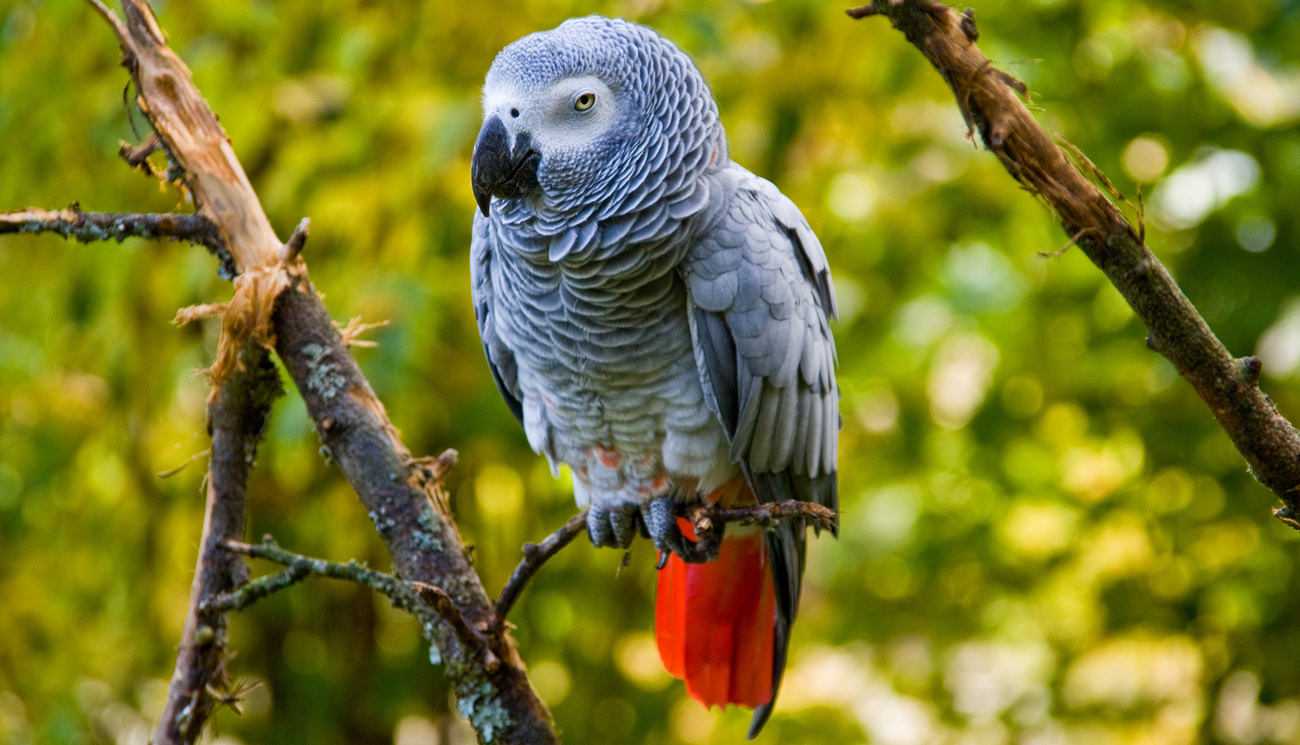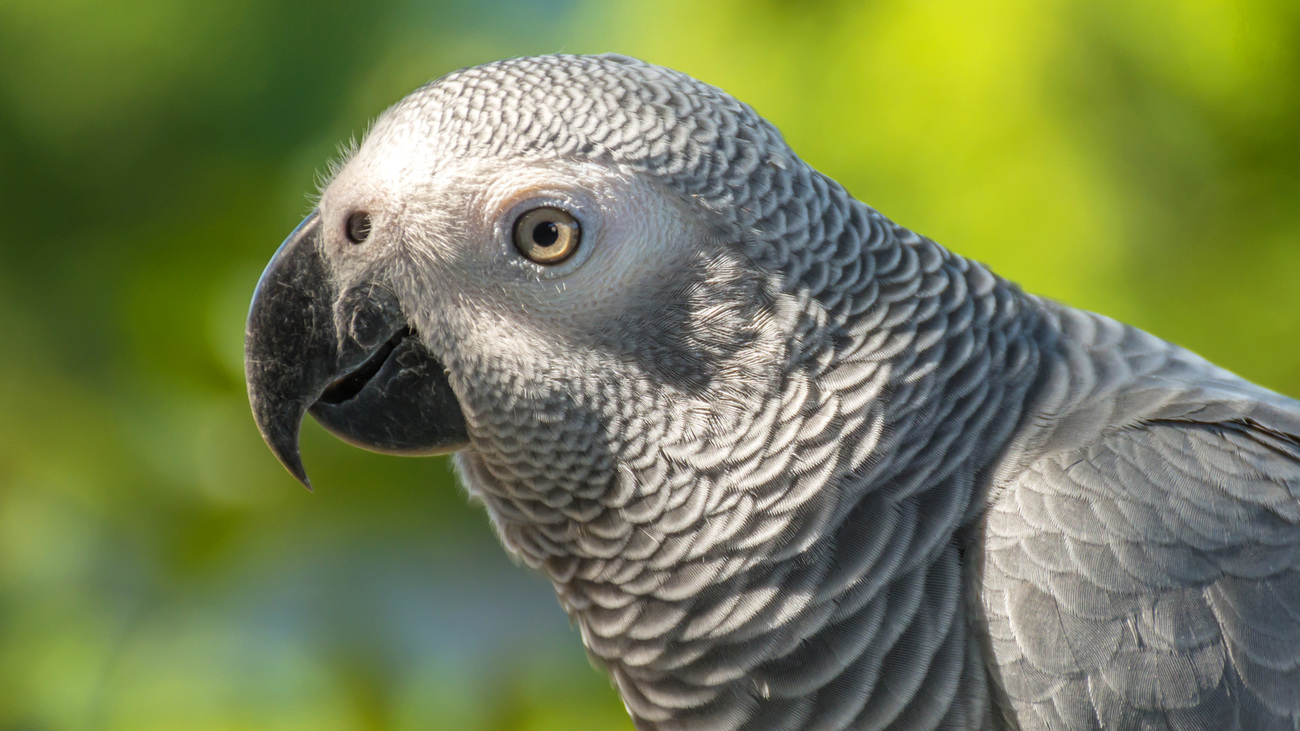Press releases
40 years after the whaling ban – whales continue to die
Read moreReducing demand and taking grey parrots off the market
Wildlife trafficking is the most dangerous international crime you never hear about—but it’s one of the leading forms of organised illegal activity. It impacts animals around the world from elephants to pangolins to songbirds—reducing populations, spreading zoonotic disease, and bringing harm to ecosystems as well as communities.
One of wildlife trafficking’s most notable victims is the African grey parrot, an extremely intelligent bird targeted for the exotic pet trade. The species has become endangered as a result.

In addition to advocating for strengthened legal protections for grey parrots under CITES, and working to enforce these laws through confiscations, rescues, and releases, IFAW is also tackling wildlife crime at the source—reducing demand and curbing market accessibility.
Behind every illegally traded parrot lies a sobering reality: each purchase fuels a trade that is driving African grey parrots closer to extinction. Educating the public about the true cost of owning exotic pets is critical. When consumers understand the suffering and ecological damage caused by their actions, they are more likely to make different choices, reducing demand.
Changing attitudes, social norms, and behaviours helps combat wildlife crime at its source—the public demand for animals and animal products. That’s why IFAW works in China, a common destination for trafficked wildlife, to develop and implement culturally sensitive, socially motivating campaigns, utilising the media to connect with the public.
Through our GUARD project, alongside a group of leading conservation organisations, IFAW is working directly with people in the Chinese mainland, Hong Kong SAR, Qatar, and the UAE to raise awareness, build understanding, and co-create local solutions that encourage more responsible, wildlife-friendly choices. Our goal is to reduce consumer demand by 25% for animals like parrots, pangolins, big cats, and reptiles.
In the Middle East and North Africa (MENA), unique economic, geographic, and cultural factors make the region both a transit hub and destination market for trafficked wildlife. Grey parrots along with other popular exotic pets are widespread, as many buyers view owning exotic pets as a symbol of status and prestige.
IFAW’s work in the MENA region takes a holistic approach to address wildlife trafficking at various levels—including shifting consumer attitudes towards exotic pets. As part of our ECO-SOLVE initiative, we aim to educate the public, through campaigns and community outreach, about the ecological and ethical consequences of keeping wild animals, like grey parrots, as pets.

Wildlife trafficking often hides in plain sight. Criminal networks take advantage of the ecommerce sites and social networks we use every day to buy and sell animals taken from the wild.
In 2018, IFAW partnered with WWF and TRAFFIC to found the Coalition to End Wildlife Trafficking Online. Together with more than 50 tech companies, as of 2024, the Coalition has blocked or removed more than 24.1 million prohibited wildlife listings and suspected illegal sellers.
We’re doing even more to help governments tackle wildlife crime in their own regions. This year, IFAW became the first wildlife conservation organisation appointed as a Trusted Flagger in the EU. This means that online platforms are legally required to tackle criminal activity on their sites that we identify. Fast-tracking the process of removing harmful wildlife advertisements in this way will quickly reduce their impact, reach, and virality. It also incentivises platforms to take proactive action against wildlife crime.
IFAW has also fostered long-term collaborative efforts with private sector companies, such as Leboncoin in France. Since 2014, Leboncoin worked initially to remove ivory sales from the platform and later became the first European company to join the Coalition to End Wildlife Trafficking Online. More recently, Leboncoin has banned the sale of wild animals on its platform.
Traffickers are using tricks like emojis, relying solely on video and images, and livestreaming. In China, we’ve launched the AI Guardian tool in partnership with Baidu, which filters target images that may involve illegal wildlife trade, report to relevant platforms or law enforcement agencies.
Since launching in 2020, the Guardian has screened 360,000 pictures, detected 21,271 target photos, and helped delete 7,853 illegal postings. In November, we launched AI Guardian 2.0, which can now identify 34 commonly traded species with an accuracy rate of 86%.
The African grey parrot is not just a symbol of the illegal wildlife trade—it’s a living testament to the need for urgent, united action. Together, we can protect these incredible birds and ensure their voices continue to echo in the wild, not in our homes.
Every problem has a solution, every solution needs support.
The problems we face are urgent, complicated, and resistant to change. Real solutions demand creativity, hard work and involvement from people like you.
Unfortunately, the browser you use is outdated and does not allow you to display the site correctly. Please install any of the modern browsers, for example:
Google Chrome Firefox Safari